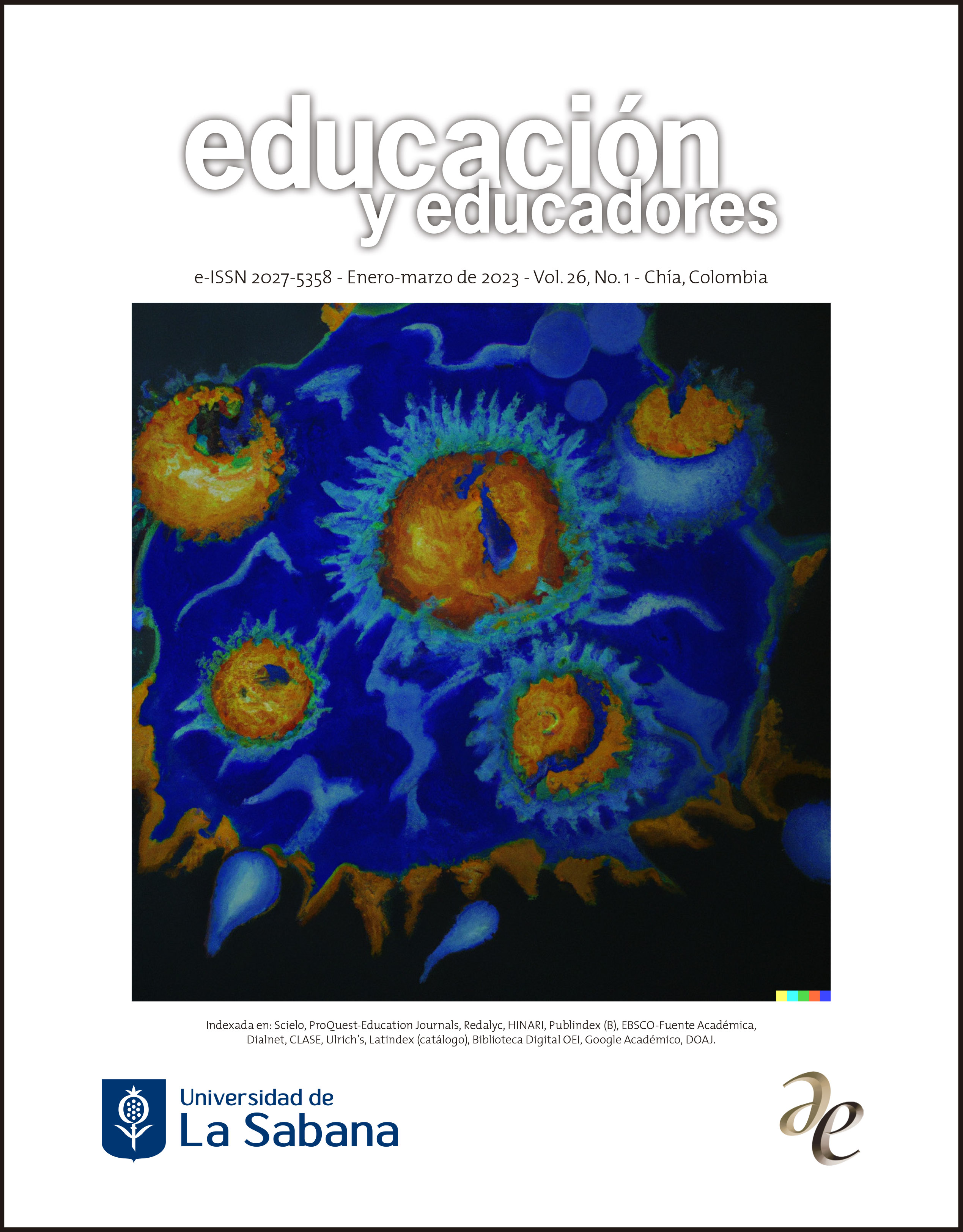Training, Growth and Virtue: Aims of Education
DOI:
https://doi.org/10.5294/edu.2023.26.1.1Keywords:
Educational anthropology, moral development, education, training, educational philosophy, teaching practice, educational theoryAbstract
The purpose of this article is to review and put into perspective certain anthropological foundations involved in educational work around the end of education, highlighting that teaching practice cannot avoid them. For the author, it is worth noting that the anthropological components and scope of the aims of education must constitute the center of all educational endeavors. Thus, from the perspective of the philosophy of education, this approach is in line with retaking concepts from the classical philosophy of realism with an Aristotelian basis, to renew the formative commitment that education implies today. Specifically, the author states that, returning to the classical conception of paideia, educating is mainly training. In conclusion, the author emphasizes that educational work, especially in the school environment, has the purpose of effectively helping students reach the fullness of their personal being, specifying five purposes in this process: to inspire students to be surprised about reality and also to awaken their interest in learning and training themselves; educate character around truth, goodness and beauty; develop virtues so that students live in coherence with their existential purposes; training supposes a process of personalization, of personal growth; and finally that education is oriented towards the profound growth of the interior life.
Downloads
References
Alvira, T. (1985a). Naturaleza y libertad. Eunsa.
Aristóteles (1983). La política. Centro de Estudios Constitucionales.
Aristóteles. (1985a). Ética a Nicómaco. Centro de Estudios Constitucionales.
Aristóteles. (1985b). La Retórica. Centro de Estudios Constitucionales.
Aristóteles. (1987). Metafísica. Gredos.
Barrio Maestre, J. M. (1994). Libertad trascendental y educación. Sobre el modelado en educación. Anuario Filosófico, 27, 527-540. https://doi.org/10.15581/009.27.29856
Calvo Martínez, T. (2003). ¿Por qué y cómo educar? Paideia y política en Aristóteles. Daimon. Revista Internacional de Filosofia, 30, 9-22.
Cardona, C. (2005). Ética del quehacer educativo. Rialp.
Crosby, J. F. (1996). La interioridad de la Persona Humana. Encuentro.
Frankl, V. (2001). El hombre en busca de sentido. Herder.
García Hoz, V. (1995). Del fin a los objetivos de la educación personalizada. Rialp.
García Hoz, V. (1988). Pedagogía visible y educación invisible. Una nueva formación humana. Editorial Quinto Centenario.
García López, J. (1986). El sistema de las virtudes humanas. Editora de Revistas.
Gorrochotegui, A. (2022). La formación de la mujer en Gabriela Mistral: un breve análisis en torno a tres textos publicados entre 1903 y 1923. Escritos, 30(65), 164-182. https://doi.org/10.18566/escr.v30n65.a01
Innerarity, D. (1992). Libertad como pasión. Eunsa.
Isaacs, D. (1994). La educación de las virtudes humanas. Eunsa.
Jaeger, W. (1992). Aristóteles. Fondo de Cultura Económica.
Jaeger, W. (1998). Paideia. Fondo de Cultura Económica.
Leclercq, J. (1960). Las grandes líneas de la filosofía moral. Gredos.
Llano, A. (2000). El valor de la verdad como perfección del hombre. Cuadernos de Anuario Filosófico, 103.
Llano, C. (1988). Las formas actuales de la libertad. Trillas.
L’Ecuyer, C. (2020). Educar en el Asombro. Plataforma.
L’Ecuyer, C. (2021). Conversaciones con mi maestra. Planeta.
MacIntyre, A. (1987). Tras la virtud. Crítica.
Millán-Puelles, A. (2007). Ética y realismo. Rialp.
Millán-Puelles, A. (1989). La formación de la personalidad humana. Rialp.
Millán-Puelles, A.(1995). El valor de la libertad. Rialp.
Naval, C. (1994). Sobre la noción de formación. Anuario Filosófico, 27, 613-624. https://doi.org/10.15581/009.27.29873
Nouwen, H. (1994). Abriéndonos. Los tres movimientos de la vida espiritual. Guadalupe.
Platón (1997). La República. Eudeba.
Pieper, J. (1980). Las virtudes fundamentales. Rialp.
Pieper, J. (1983). El ocio y la vida intelectual. Rialp.
Pieper, J. (2000). La fe ante el reto de la cultura contemporánea. Rialp.
Polo, L. (2007). Ayudar a crecer, cuestiones filosóficas de la educación. Eunsa.
Polo, L. (1996a). Ética. Hacia una versión moderna de los temas clásicos. Unión Editorial.
Polo, L. (1996b). La persona humana y su crecimiento. Eunsa.
Redondo, E. (coord.). (2015). Introducción a la historia de la educación. Ariel.
Robinson, K. (2018). Tú, tu hijo y la escuela. Penguin Random House.
Sallés, J. F. (1999). La virtud de la prudencia según Tomás de Aquino. Cuadernos de Anuario Filosófico, 90.
Santo Tomás de Aquino. (1989). Suma de Teología, I-II. BAC Maior.
Spaemann, R. (1987). Ética. Cuestiones fundamentales. Eunsa.
Spaemann, R. (1989). Lo natural y lo racional. Rialp.
Yepes, R. (1998). La persona y su intimidad. Cuadernos de Anuario Filosófico, 48.
Published
How to Cite
Issue
Section
License
Copyright (c) 2023 Educación y Educadores

This work is licensed under a Creative Commons Attribution-NonCommercial-NoDerivatives 4.0 International License.
1. Proposed Policy for Journals That Offer Open Access
Authors who publish with this journal agree to the following terms:
-
This journal and its papers are published with the Creative Commons License CC BY 4.0 DEED Atribución 4.0 Internacional. You are free to share copy and redistribute the material in any medium or format if you: give appropriate credit, provide a link to the license, and indicate if changes were made; don’t use our material for commercial purposes; don’t remix, transform, or build upon the material.










